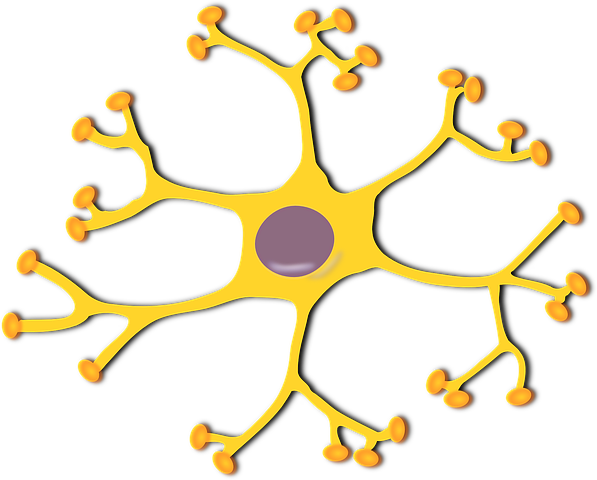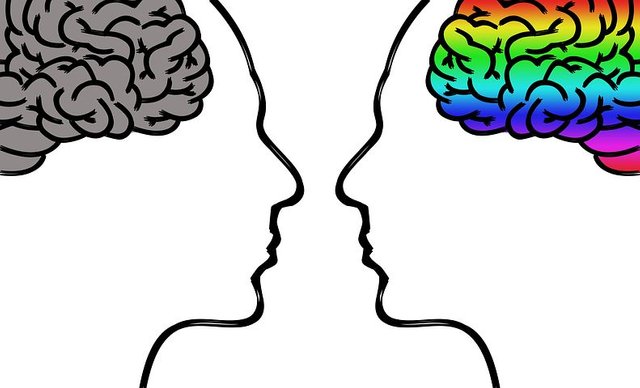THE DEBUNKED MYTH ON THE FIVE SENSES OF THE HUMAN BODY.
"pixabay.com, CCO"
We all grew up learning we only have five basic senses in our body: touch,sight, hearing, smell and taste, but for the first time they were wrong.
The sensing organs pertaining to each senses send information to the brain so we can perceive and understand the world that revolves around us.
Until recently, we have always described our thoughts and emotions with these 5 senses. Modern cognitive Neuroscience challenges this understanding that there are likely up to 33 human senses that are debatable (9 senses confirmed, also, 21 senses confirmed but less focused senses) and not five senses.
Lol, don't go thinking you have been lied to all your life! This five basic senses wetted and watered inquisitive minds to discover there had to be more. Everyday, different receptors work together when we carry out even minimal activities like watching a movie or eating a meal.
Let's go down to business. The first person who tried to make a list of the human senses was the Greek philosopher, Aristotle (348 BC-322 BC). He was also the first to name the five basic senses in human. Then 4 more were added and 21 or 33 more from further differentiation were added to human senses. The list of human senses, both conventional and come-to-terms human senses are listed below.
**List of Human Senses, Sense organs and Basic Functions**
BASIC SENSES IN HUMAN
Sense of Touch - It is thought to be the first sense humans develop. Pressure, temperature, light touch, vibrations, pain and other sensations in general sense can be categorized as part of the touch sense. Through various specialized neurons various sensation is communicated to the brain. It could be called Thermoreception, mechanoreception or somatosensation. It could sense heat or cold. The skin plays this role. Pathological cases like paresthesia, numbness, anesthesia are considered when we go in depth! (I will save u these one lol)
Sense of Smell - We have about 388 olfactory receptors(quite numerous) . Each receptors have percuilar molecular sensitivity and that is why odor molecules may excite certain specific receptors strongly and excite other receptors weakly. In the brain, we have the olfactory system, so a combination of various excitatory signals makes up what we perceive. Buster!!- what we taste is a functioning of what we smell (anticipate in next series). It is also called Olfaction. The Nose plays this function. You can call it Perceiver of Nations lol!!!
Pathology: anosmia.Sense of Hearing - It's our sound perception, it's all about vibration, vibrations cause sound waves. It is the ability to perceive sounds by detecting vibrations, changes in the pressure of the surrounding medium through time and through the ear (made up of the outer, middle and inner ear). Firstly we pick sound waves around us via the pinna and ear canal, then the vibrator (middle ear) ; why? because it vibrates differently based on loudness and pitch of the sound; and ear drum moves in like manner, finally, the inner ear is called cochlea, it passes the transmitted message to the auditory cortex in the brain that makes sound meaningful based on our memory and knowledge. Pathology: Otitis media amongst others.
Sense of Taste - It can be called Gustaoception. It is sensation produced when a substance in the mouth reacts chemically with the taste receptor cells located on the taste buds in the oral cavity. These receptors are called Gustatory Calyculi, it can be found in the tongue and epiglottis. Brainbox tip here!! Taste along with olfaction and trigeminal nerve stimulation (which sense pain, temperature and texture) determine how the food we eat taste as well as for other substances. There are thousands of papillae and in each papillae we have the taste buds (about 2000-5000 taste bud both at front and back of tongue but there are 50-100 taste receptor cells in each bud. There are 5 sensations( I think we have a liking for 5, lol) and they are the sweetness, saltiness, bitterness, sourness and savoriness. The gustatory receptor in the brain is responsible for perception of taste. Pathology: dysgeusia

a man perceiving
"pixabay.com, CCO".Sense of sight - It is ability of eyes to focus and detect images of visible light on photoreceptor in the retina of each eye that generates electrical nerve impulses for varying colours, hues and brightness. We have two photoreceptor, there are; rods and cones. The visual cortex if the brain where patterns and objects in images are recognised and interpreted based on previously learned information called the Visual Memory.
Pathology; blindness, blindsight etc.
INTERNAL SENSES IN HUMAN BODY (4)
Thermoception - Via the skin to detect temperature.
Proprioception- Kinetic sense, provides brain with information on movement and relative positions of body parts without visual aid.
Equilibrioception - It's balance or vestibular sense, it senses and allows organisms sense direction, movement, acceleration, attain and maintain postural equilibrium and balance. Vestibular nerve plays a role ( your guess was as good as mine!)
Nociception- It detects physiological pain. It signals damages to tissue and nerves. There are the cutaneous(skin), somatic(joints and bones) and visceral(body organs) nociceptors.
ADDITIONAL HUMAN SENSES
Sexual stimulation- This sense is different from the touch sense, in that it is strongly tied to hormonal activities and chemical triggers in the body.
Stretch receptors in the muscles, skin, joints

nerve cell "pixabay.com, CCO"Tactility - The sense that perceives pressure.
Chemoreception - Via the blood
Chemoreceptor Trigger Zone - It is found in brain (medulla)
Cutaneous reception - Via the Skin; it senses skin vasodilation (blushing)
Sensory receptors in the pharynx mucosa - They sense of gag reflex
Sensory stimulatory receptors in the urinary bladder and rectum - it senses fullness
Stretch receptors in the gastrointestinal tract - It senses gas distension.
Sensory stimulatory receptors in the oesophagus - It results in sensations in throat when vomiting, swallowing or during acid reflux
Cardiorececeptor - Perception of the activity of the heart
Pulmonary stretch receptors - In Lungs, to control respiratory rate.
EXTRA SENSORY PERCEPTION
Sixth sense - The small brain which is sense of intuition
Premonitions
Telepathy
Precognition - Visual perception of future events
Clairvoyance - Visual perception of invincible objects or events.

invincibility
"pixabay.com, CCO"Clairaudience - Auditory perception of the invincible
Chronoception
Sense of agency
Sense of familiarity - recognition sense
Stereopsis - Perception of depth.
However the senses in extra sensory perception category are controversial and have little or no scientific evidence.
Conclusion
Only a comatose or dead person can be said to have no senses. The human senses is very vital as it plays a role in motion, reaction, emotion,recognition, perception, sensation, cognition, comprehension, interpretation.
Each sense organ works differently and uses unique receptors to do so.
References
Allegory of the Five Senses. The Walters Art museum.
Personal research works and lecture works.
(https://bodytomy.com/how-many-senses-does-human-have.amp)
(https://en.m.wikipedia.org/wiki/Sense)
(https://en.m.wikipedia.org/wiki/Taste)

Dumebi is also on steemit.
That's great
He knows me😁😀😀
Yeah
Smiles😊.
It is left for you to figure out who it is
Some research indicates that a comatose patient can actually hear. What is your opinion?
You would agree with me that it's not in all cases.
What happens for patient A may not be same for patient B.
I agree with you some patients are responsive.
However, in this context, the "only" was used to emphasize the time we can ever say man have no senses or rather if they do they can't express it for observers(like doctors) to record.
Some images in this post are copyright-protected. It is kindly advised that you edit your post and replace them with images under the appropriate license. For more information click on the link below.
https://steemit.com/steemstem/@steemstem/guidelines-on-copyright-standards-in-steemstem